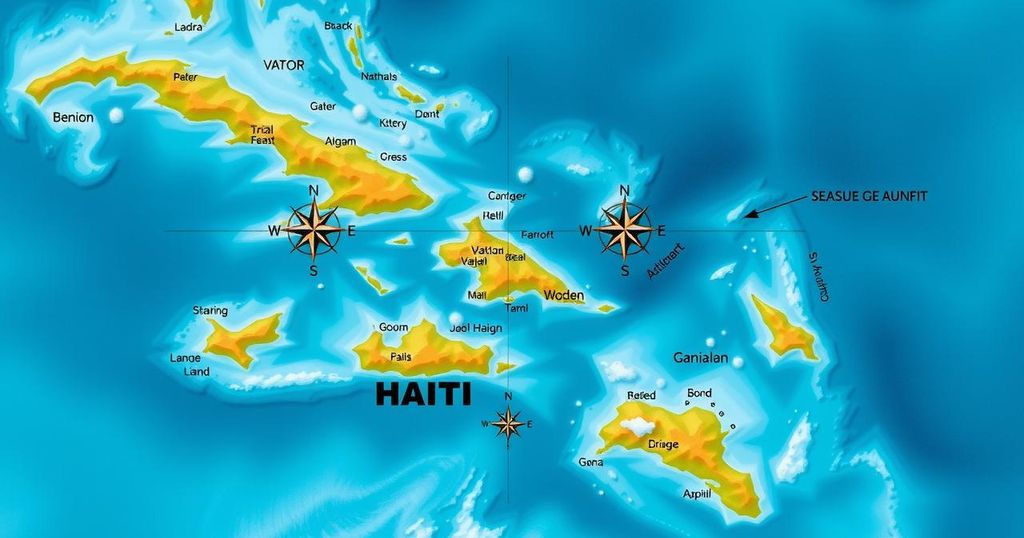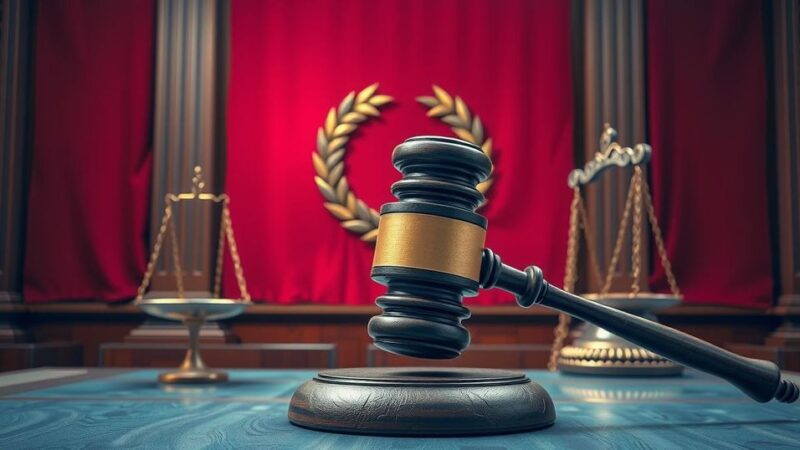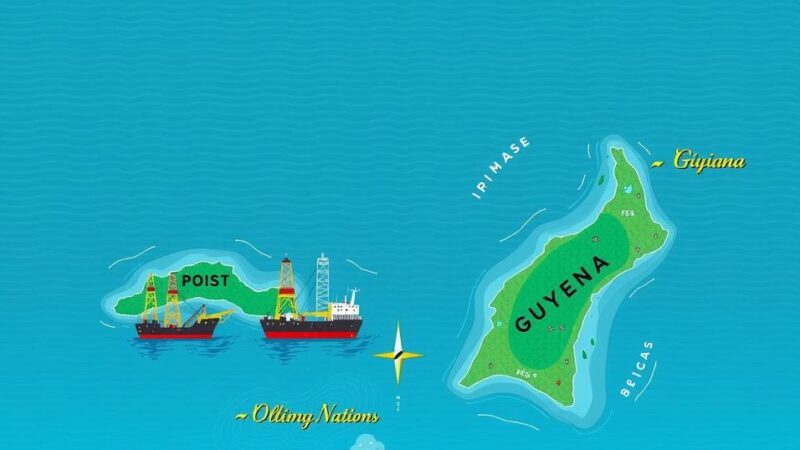U.S. Secretary of State Marco Rubio is in the Caribbean to address the crises in Haiti and support Guyana against Venezuela. His agenda at the CARICOM summit includes discussions on illegal immigration and regional violence. The situation in Haiti remains critical, with ongoing violence and a need for enhanced international security efforts. Additionally, Guyana’s oil interests amidst Venezuelan tensions are a focal point of discussions, with concerns over U.S. policy impacts on regional economies.
United States Secretary of State Marco Rubio arrived in the Caribbean on Wednesday, seeking solutions for the ongoing violence in Haiti and to support Guyana amid its territorial dispute with Venezuela. His visit begins in Jamaica, where he will participate in the Caribbean Community (CARICOM) summit, followed by visits to Guyana and Suriname.
During the CARICOM summit, Secretary Rubio plans to speak with leaders from Haiti, Jamaica, Barbados, and Trinidad and Tobago on issues of illegal immigration, violence, and contraband in the region. In a recent statement regarding his trip, he emphasized the importance of holding accountable those involved in financial fraud. This trip marks Rubio’s second visit to Latin America since taking office, as the current administration prioritizes migration issues.
Haiti, recognized as the poorest nation in the Americas, faces a severe crisis characterized by weakened government authority and escalating violence. Despite the deployment of a Kenyan-led international security mission, supported previously by President Biden, the situation remains critical, particularly with a recent spike in gang violence displacing over 60,000 individuals in Port-au-Prince within a month. Rubio has made adjustments to U.S. aid policies to continue supporting the mission in Haiti while the administration has not yet announced any new proposals.
Mauricio Claver-Carone, the U.S. special envoy for Latin America, indicated that Secretary Rubio seeks to engage with Caribbean countries to solicit their perspectives on the situation in Haiti. He stressed the development of a strategy to bolster the Haitian National Police’s capabilities for effectively addressing gang violence, mentioning the necessity of expanding international efforts in this regard.
In addition to addressing Haiti, Secretary Rubio is also focused on the escalating interest in Guyana, which has recently discovered significant oil reserves, leading to its position as the country with the largest crude oil reserves per capita. The oil resources are located in the contentious Essequibo region, which is claimed by Venezuela. Guyana has condemned recent incursions by Venezuelan military vessels while Venezuela has denied these claims.
As tensions with Venezuela increase, Claver-Carone expressed the U.S. intention to collaborate with Guyana to enhance regional security. Amidst this backdrop, President Irfaan Ali has voiced concerns regarding potential U.S. tariffs on countries purchasing Venezuelan oil and how such actions might impact Caribbean nations. Patrick Antoine, head of the Caribbean Private Sector Organisation, noted that any tariffs could significantly raise freight costs across the region, necessitating urgent discussions to mitigate the effects.
In conclusion, Secretary Rubio’s visit underscores the United States’ commitment to addressing the crises in Haiti while strengthening ties with Guyana in light of regional tensions. With a focus on collaborative solutions, the discussions at the CARICOM summit will be pivotal in shaping the future of these nations amidst persistent challenges. The situation in Haiti remains urgent, necessitating immediate strategies to combat gang violence and restore stability, while actions regarding Guyana will impact broader regional relations.
Original Source: www.wyomingnewsnow.tv






